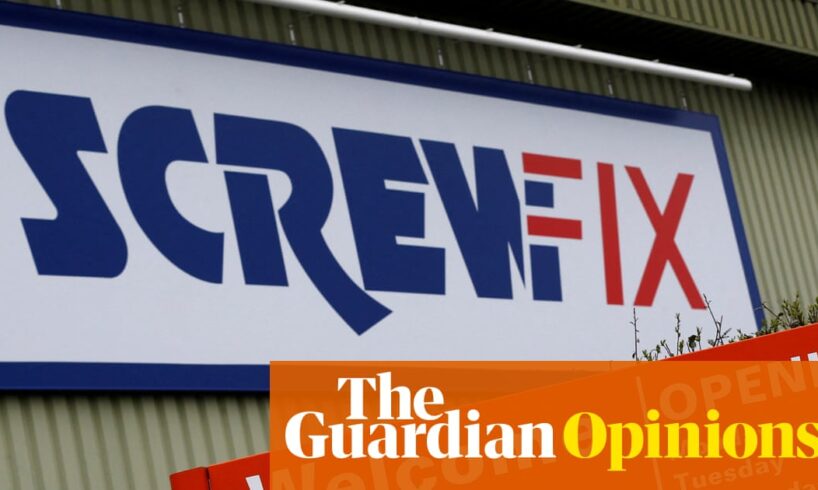
The UK and France, according to the popular script, are living beyond their means and their citizens must brace for tax rises, spending cuts and all manner of confidence-sapping measures. So it ought to be a horrible time to be a retailer whose biggest market is the UK and whose second largest is France. Throw in a product range that is heavy on kitchens and bathrooms, where a purchase can usually be deferred until next year, and you’ve got a recipe for weak trading, right?
Such thinking was presumably why Kingfisher – owner of B&Q and Screwfix in the UK and Castorama and Brico Dépôt in France – was among the most heavily shorted stocks in the FTSE 100 index by hedge funds going into Tuesday’s half-year numbers. If you want to bet against an economy, or two at once, a large and widely owned DIY retailer is a logical place to start in theory.
The practice is harder. Far from bemoaning its lot, Kingfisher reported an underlying gain of 1.9% in like-for-like sales in the half and said sales of kitchens and bathrooms were going splendidly in the UK. Forecasts for full-year pre-tax profits were raised to the “upper end” of the previous £480m-£540m range. The cash forecast was even stronger, allowing the existing £300m share-buy programme to be accelerated. The shares improved by 15%, a jump probably assisted by short-sellers covering their positions.
The moral of this tale is probably threefold. First, DIY retailing has unique features. An early spring and a warm Easter, as this year, can make a difference – think plants and garden furniture. About 28% of business across Kingfisher also comes from trade customers these days, and their behaviour is critical: they visit three times as often as regular punters and spend three times as much on average.
Second, it’s dangerous to assume consumer sentiment is uniform. Supermarket executives talk about a “70/30” market where the proportion of customers who are pulling in their spending is definitely increasing, but the majority are still feeling fine. It is why “Aldi price match” and premium ranges can simultaneously be strong. In a DIY context, it may explain the big-ticket phenomenon: housing transactions have been stable and mortgage affordability, lest we forget, has still improved slightly because real wages have risen and interest rates have fallen (a bit).
The third factor is simply that Kingfisher is a tightly run business, especially in the UK. Screwfix, the most trade-focused end of the operation, is miles ahead of its closest competitors. At B&Q, the return of an installation service has clearly boosted the kitchens and bathrooms side and it is not unhelpful that Homebase went into administration last year. The French operations are weaker but a self-help restructuring plan started there a year ago. Retailers, even large ones, aren’t simply prisoners of their market.
skip past newsletter promotion
Sign up to Business Today
Get set for the working day – we’ll point you to all the business news and analysis you need every morning
Privacy Notice: Newsletters may contain information about charities, online ads, and content funded by outside parties. If you do not have an account, we will create a guest account for you on theguardian.com to send you this newsletter. You can complete full registration at any time. For more information about how we use your data see our Privacy Policy. We use Google reCaptcha to protect our website and the Google Privacy Policy and Terms of Service apply.
after newsletter promotion
None of which means the hedge funds are wrong in their general big-picture gloominess about the UK and France. Kingfisher’s boss, Thierry Garnier, said he was “mindful of mixed consumer sentiment and political uncertainty”. But bearish bets are also about timing and picking the right stock. Kingfisher is basically a resilient business that generates cash in most conditions and pays a good dividend to shareholders. You can get burnt betting against those.




